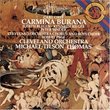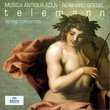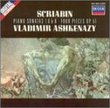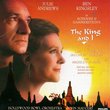| All Artists: Gustav Mahler, Otto Klemperer, Philharmonia Orchestra, Elisabeth Schwarzkopf Title: Mahler: Symphony No. 2 ("Resurrection") Members Wishing: 0 Total Copies: 0 Label: Angel Records Release Date: 5/7/1990 Genre: Classical Styles: Historical Periods, Modern, 20th, & 21st Century, Symphonies Number of Discs: 1 SwapaCD Credits: 1 UPC: 077776966229 |
Search - Gustav Mahler, Otto Klemperer, Philharmonia Orchestra :: Mahler: Symphony No. 2 ("Resurrection")
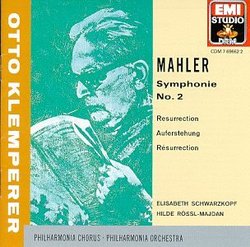 | Gustav Mahler, Otto Klemperer, Philharmonia Orchestra Mahler: Symphony No. 2 ("Resurrection") Genre: Classical
|
Larger Image |
CD DetailsSimilarly Requested CDs |
CD ReviewsMahler's disciple in everyway B. Yoon | Urbana, IL USA | 07/16/2000 (5 out of 5 stars) "Klemperer's big break came when he impressed Mahler by playing a piano reduction of the first movement of this symphony. He also conducted the offstage band in a performance of this work, again, much to the liking of Mahler. One would only expect the best in the hands of the master's apprentice and here that is what we get.Not only does Klemperer's aesthetics match those of Mahler's, but he has also lead an equally tragic life. Like Mahler, he never became bitter over the tragedies and injustices that he encountered. He triumphed over all of them. For these reasons, when Klemperer interprets Mahler, he BECOMES Mahler. This is crucial here in probably the most emotionally expansive of the Mahler symphonies, if not all of classical music. So much of Mahler's personality is imbedded into the work that if one attempts to add their personal stamp to the interpretation, it only diminishes Mahler's message. Klemperer embodies Mahler in mind, body, and spirit. He is aided by the immortal Schwartzkopf and the Philharmonia. Now some have complained about the technical deficiencies of this performance. Like Furtwangler, Klemperer is most concerned with the architectural and organic elements of music, something all too rare in today's musicians. The imprecision exhibited here is a very small sacrifice to pay for the towering, eloquent rendering we have here. Here is one of my favorite Mahler recordings. The only other 2nd that I feel is in the same class is the Hermann Scherchen recording with the Vienna State Opera." Great recording, but not Klemp's best erclark@princeton.edu | Arlington, VA | 08/20/1999 (4 out of 5 stars) "This is the recording that introduced me to Mahler's 2nd, and I'm glad that I chose Klemperer (whose name was, at the time, not as familiar to me as certain other conductors) over the competition. OK is a great conductor in Mahler, and the 2nd was his specialty -- his 9th is pretty good, too -- which is a good a combination. I have since obtained his live recording from 1965 with the Bavarian Radio Symphony Orchestra, and I was blown away. It is magnificent, and the mezzo soloist is Dame Janet Baker, whose rendition of the fourth movement almost brings tears to my eyes. It doesn't seem to be available on Amazon.com...but you can probably get it in any decent store for about the same price as this recording. It is on EMI as well, in the "Klemperer Legacy" series. The sound is not quite up to modern standards, but it is in stereo and is perfectly acceptable, and you will not regret purchasing it." The Best 2nd ever Ytzan | Athens, GR | 04/18/2000 (5 out of 5 stars) "I can't express my feeling when I heard this recording. Absolutely great. The sound is not Digital but such a great recording is worth aquiring even though the sound is not perfect. Being in one disk is another advantage."
|

 Track Listings (5) - Disc #1
Track Listings (5) - Disc #1

